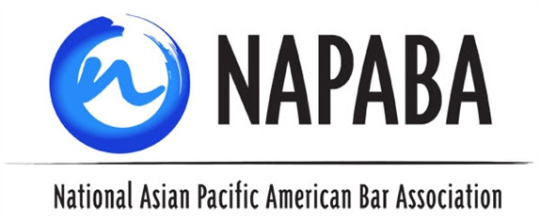
For Immediate Release
Nov. 4, 2015
For More Information, Contact:
Brett Schuster: 202-775-9555; [email protected]
National Coalition of Bar Associations of Color Urge Supreme Court to Support Diversity in Admission Programs
File Joint Brief with U.S. Supreme Court in Fisher v. University of Texas
WASHINGTON — The Coalition of Bar Associations of Color (CBAC)–the Hispanic National Bar Association (HNBA), the National Asian Pacific American Bar Association (NAPABA), the National Bar Association (NBA) and the National Native American Bar Association (NNABA) filed a joint amicus curiae brief with the U.S. Supreme Court in Fisher v. University of Texas at Austin. The Court will review the standard used by University of Texas at Austin in developing their race-conscious admissions policy following a 2013 decision by the Court which affirmed the principle that diversity in higher education is a compelling national interest. With oral arguments scheduled for Dec. 9, the four organizations recognized the significance of all four communities of color standing together in support of race-conscious admission policies in order to promote diversity in the legal profession. The brief discusses the unique perspectives of the communities each bar association represents, and highlights the importance of ensuring access to institutions of higher education, in order to preserve a diverse pipeline for our multicultural society and ultimately advance CBAC’s shared commitment to diversity in the legal profession. The brief can be found here: http://bit.ly/fisher2cbac
“The National Bar Association proudly stands with our CBAC partners to once again argue that now is not the time to turn back the clock on our efforts for diversity in the U.S.,” NBA President Benjamin L. Crump said. “We have taken significant strides forward but we know that there is much work to be done in order to achieve a diverse and inclusive society. The Court, as before, should uphold the admirable and critical efforts institutions of higher education in their continuing mission to reflect society and its diversity. The court should not jeopardize the progress made and sought by law schools and the legal community to simply reflect the rich diversity that makes this nation great.”
“The Hispanic National Bar Association is proud to join our partner bar associations of color to reaffirm the decades of Supreme Court precedent deeming collegiate diversity a compelling national interest,” said HNBA President Robert T. Maldonado. “Despite efforts that have been made to improve equal access and opportunity in colleges and law schools of our nation, the simple fact is that we still do not have a level playing field, and there is much left for us to do. College admissions programs that take race into account, among a number of other factors, fit the parameters the Court has laid out in previous decisions, and work to create a diverse and inclusive student body that is beneficial to everyone. It is essential for college campuses to reflect the diversity of our nation to prepare our students for success in the real world.”
“The National Asian Pacific American Bar Association supports efforts to overcome barriers to equal opportunity. We are proud to join our colleagues in the Coalition of Bar Associations of Color encouraging the Court to recognize the benefits students receive when immersed in diverse environments, and to uphold the University of Texas’s attempt to create opportunities for diverse populations,” said NAPABA President George C. Chen. “We recognize that Asian Pacific Americans, like other groups, have endured cases of discrimination and lack of opportunities which continue to impact us today. The low numbers of minority groups in the legal profession, government, and corporate leadership underscore the need to remove barriers to higher education and increase diversity. Courtrooms, law firms, and law schools must be filled with people of different backgrounds so that we can better understand and respect the diversity of the American public.”
“The National Native American Bar Association joins our CBAC partners in expressing the importance of creating a pipeline for students of color in higher education,” shared NNABA President Linda Benally. “The Supreme Court has previously affirmed the compelling interest of colleges in encouraging diversity in the student body, which should not be removed. Race-conscious admissions programs, like the one designed by the University of Texas, open doors for students of color by ensuring a richer and intellectually diverse classroom experience for all students.”

